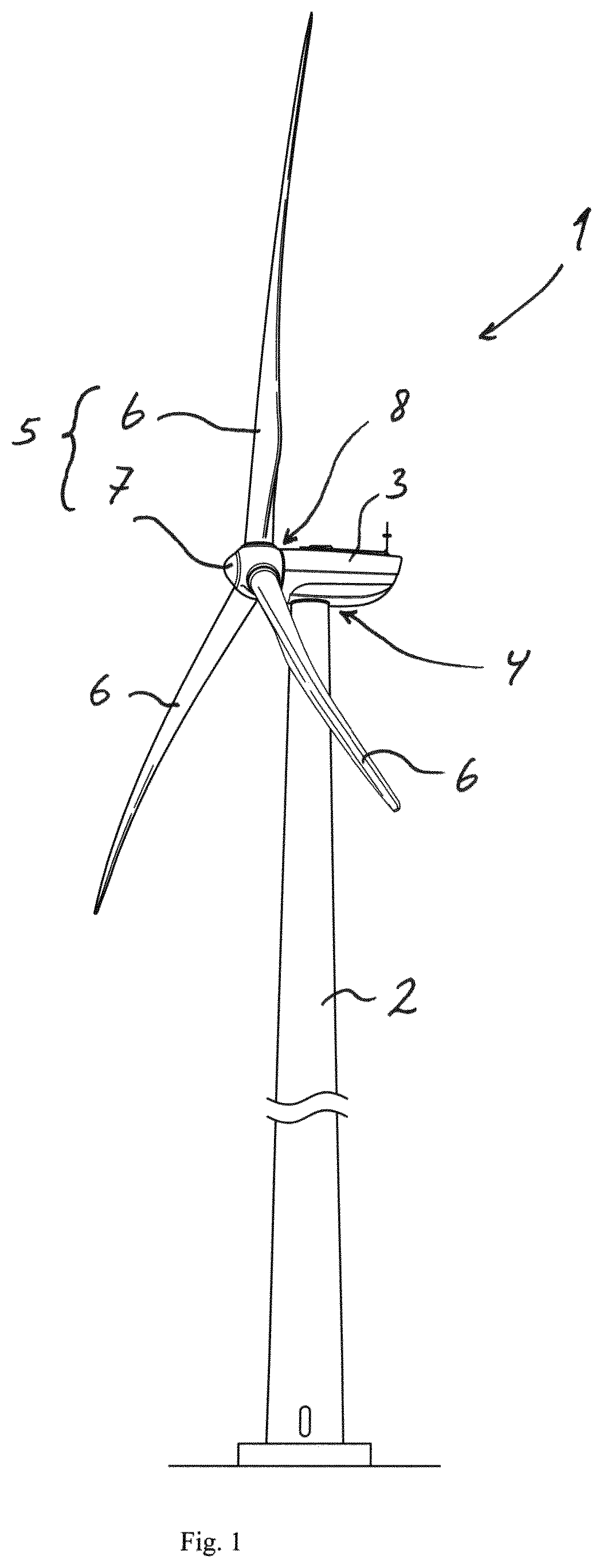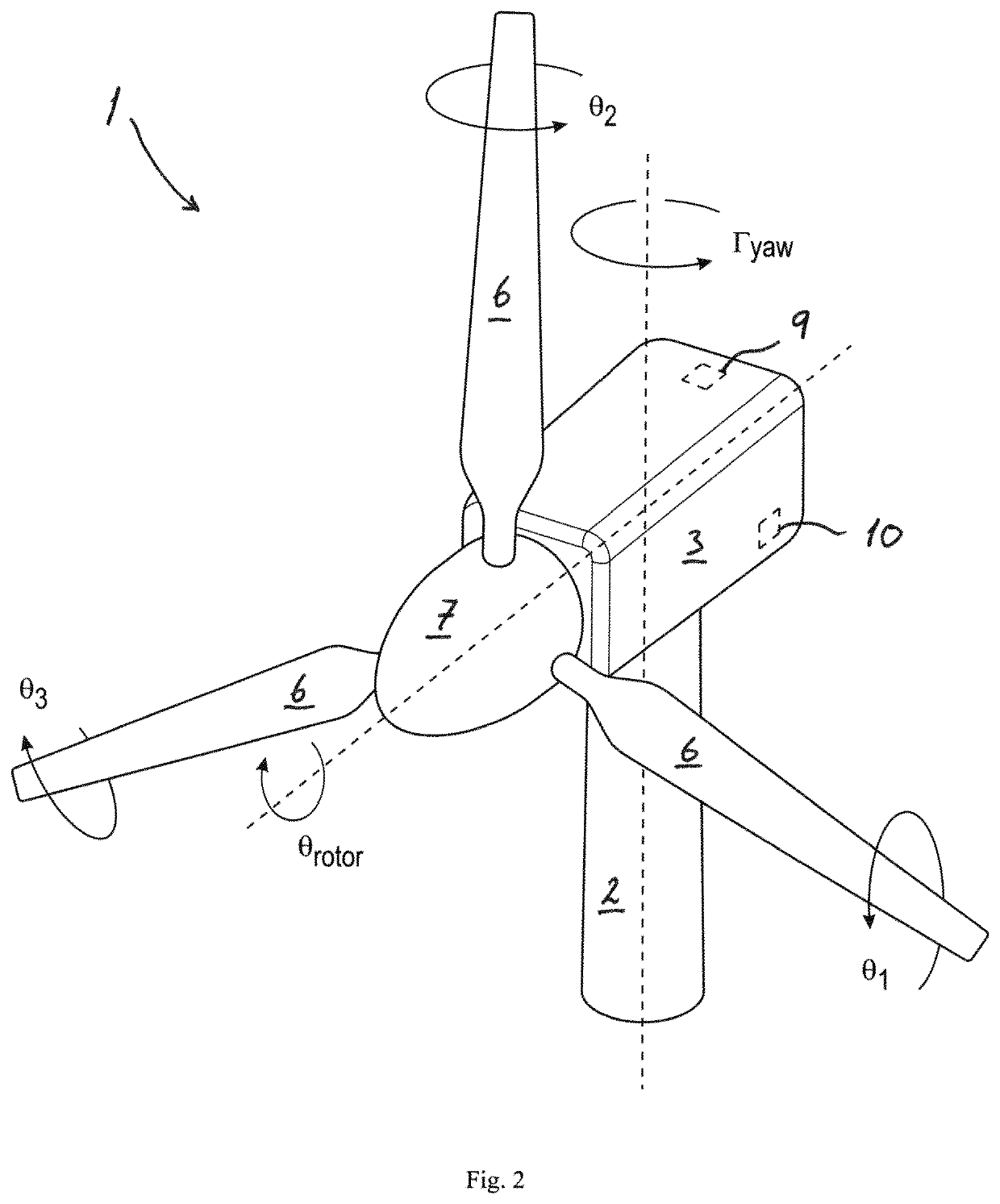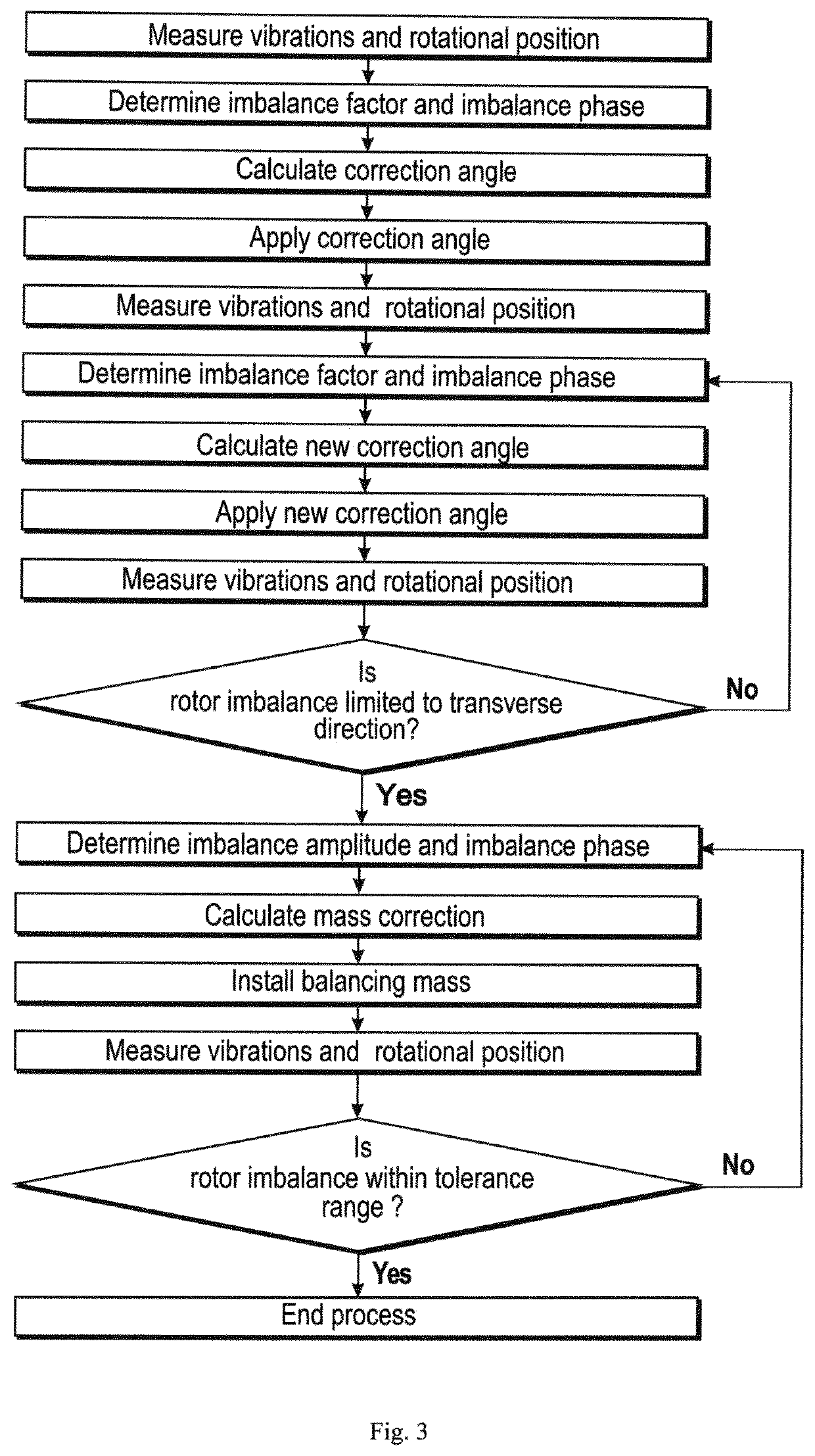Method of correcting rotor imbalance and wind turbine thereof
a technology of rotor imbalance and wind turbine, which is applied in the direction of wind motor control, wind power generation, wind power generation, etc., can solve the problems of rotor imbalance, rotor imbalance, deformation of wind turbine blade aerodynamics, etc., and achieve the effect of reducing mass imbalance and saving time and cost of the correction process
- Summary
- Abstract
- Description
- Claims
- Application Information
AI Technical Summary
Benefits of technology
Problems solved by technology
Method used
Image
Examples
first embodiment
[0036]In a first embodiment, the control parameters mentioned above are measured within at least two time windows, e.g. the first and second time windows, in an initial or first run of the correction process. The control system then determines an imbalance factor and an imbalance phase for each of the first and second time windows. A first correction action is calculated and applied after the first measurement. A second control action is afterwards calculated and applied after the second measurement. This also enables the parameters used to calculate this correction action to be adjusted to the changing rotor imbalance as described later. In any subsequent (second, third, fourth, etc.) runs of the correction process, the control parameters are measured within a least one time window, e.g. a third time window, and thus the control system determines at least one (third) imbalance factor and / or imbalance phase based on this third measurement optionally using these adjusted parameters.
[...
second embodiment
[0045]In a second embodiment, the control parameters mentioned above are measured within at least three time windows, e.g. the first, second and third time windows, in an initial or first run of the correction process. The control system then determines an imbalance factor and an imbalance phase for each of the first, second and third time windows. A first deterministic imbalance or correction action, e.g. the first rotor imbalance, is applied to the rotor after the first measurement. A second deterministic imbalance or correction, e.g. the second rotor imbalance, is applied to the rotor after the second measurement. The deterministic imbalances may be any aerodynamic and / or mass imbalance. The control system then calculates a required correction action based on these first, second and third imbalance factors and imbalance phases. This also enables these parameters used to calculate the correction action to be adjusted to the changing rotor imbalance as described later. In any subse...
third embodiment
[0108]FIG. 7 shows the correction method according to the invention,
[0109]FIG. 8 shows three graphs of the amplitude of an exemplary measured rotor imbalance before and after a first and second run of the correction process,
[0110]FIG. 9 shows three graphs of the imbalance factor of the rotor imbalance of FIG. 8 before and after the first and second run of the correction process, and
[0111]FIG. 10 shows three graphs of the imbalance phase of the rotor imbalance of FIG. 8 before and after the first and second run of the correction process.
[0112]In the following text, the figures will be described one by one and the different parts and positions seen in the figures will be numbered with the same numbers in the different figures. Not all parts and positions indicated in a specific figure will necessarily be discussed together with that figure.
PUM
 Login to View More
Login to View More Abstract
Description
Claims
Application Information
 Login to View More
Login to View More - R&D
- Intellectual Property
- Life Sciences
- Materials
- Tech Scout
- Unparalleled Data Quality
- Higher Quality Content
- 60% Fewer Hallucinations
Browse by: Latest US Patents, China's latest patents, Technical Efficacy Thesaurus, Application Domain, Technology Topic, Popular Technical Reports.
© 2025 PatSnap. All rights reserved.Legal|Privacy policy|Modern Slavery Act Transparency Statement|Sitemap|About US| Contact US: help@patsnap.com



